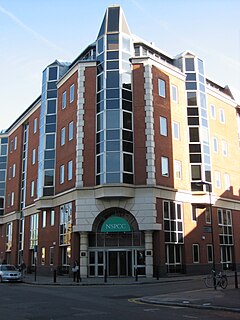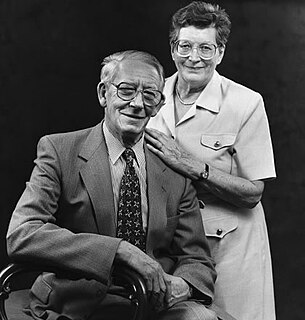Related Research Articles
The Real Irish Republican Army, or Real IRA (RIRA), is a dissident Irish republican paramilitary group that aims to bring about a united Ireland. It formed in 1997 following a split in the Provisional IRA by dissident members, who rejected the IRA's ceasefire that year. Like the Provisional IRA before it, the Real IRA sees itself as the only rightful successor to the original Irish Republican Army and styles itself as simply "the Irish Republican Army" in English or Óglaigh na hÉireann in Irish. It is an illegal organisation in the Republic of Ireland and designated as a proscribed terrorist organisation in the United Kingdom and the United States.

The Omagh bombing was a car bombing on 15 August 1998 in the town of Omagh, County Tyrone, Northern Ireland, United Kingdom. It was carried out by a group calling themselves the Real Irish Republican Army, a Provisional Irish Republican Army (IRA) splinter group who opposed the IRA's ceasefire and the Good Friday Agreement, signed earlier in the year. The bombing killed 29 people and injured some 220 others, making it the deadliest single incident of the Troubles in Northern Ireland. Telephoned warnings had been sent almost forty minutes beforehand and police inadvertently moved people toward the bomb.

The National Society for the Prevention of Cruelty to Children (NSPCC) is a charity campaigning and working in child protection in the United Kingdom and the Channel Islands.

Childline is a counselling service for children and young people up to their 19th birthday in the United Kingdom provided by the NSPCC. They deal with any issues which cause distress or concern; some of the most common issues include child abuse, bullying, mental illness, parental separation or divorce, teenage pregnancy, substance misuse, neglect, and psychological abuse.
The Warrington bombings were two separate bomb attacks that took place during early 1993 in Warrington, Cheshire, England. The first attack happened on 26 February, when a bomb exploded at a gas storage facility. This first explosion caused extensive damage, but no injuries. While fleeing the scene, the bombers shot and injured a police officer and two of the bombers were caught following a high-speed car chase. The second attack happened on 20 March, when two smaller bombs exploded in litter bins outside shops and businesses on Bridge Street. Two children were killed and a total of 56 people were injured.

Gordon Wilson was a draper in Enniskillen, County Fermanagh, who became known internationally as a peace campaigner during the Troubles in Northern Ireland.

The 1996 Manchester bombing was an attack carried out by the Provisional Irish Republican Army (IRA) on Saturday 15 June 1996. The IRA detonated a 1,500-kilogram (3,300 lb) lorry bomb on Corporation Street in the centre of Manchester, England. It was the biggest bomb detonated in Great Britain since the Second World War. It targeted the city's infrastructure and economy and caused significant damage, estimated by insurers at £700 million – only surpassed by the 2001 September 11 attacks and the 1993 Bishopsgate bombing, in terms of financial cost. The IRA was also responsible for the latter.

The Remembrance Day bombing took place on 8 November 1987 in Enniskillen, County Fermanagh, Northern Ireland. A Provisional Irish Republican Army (IRA) bomb exploded near the town's war memorial (cenotaph) during a Remembrance Sunday ceremony, which was being held to commemorate British military war dead. Eleven people were killed, many of them elderly, and 63 were injured. The IRA said it had made a mistake and that its target had been the British soldiers parading to the memorial.

From 1969 until 1997, the Provisional Irish Republican Army (IRA) conducted an armed paramilitary campaign primarily in Northern Ireland and England, aimed at ending British rule in Northern Ireland in order to create a united Ireland.

Claire Regina Fox, Baroness Fox of Buckley is a British writer and politician who served as Member of the European Parliament (MEP) for the North West England constituency from 2019 to 2020 for the Brexit Party. Fox was given a peerage by the Boris Johnson-led Conservative government in 2020 and currently sits in the House of Lords as a life peer. She is the director and founder of the Institute of Ideas think tank.
Thomas Begley, was a Belfast Brigade of the Provisional Irish Republican Army (IRA) Volunteer. Begley was killed when a bomb he was planting on the Shankill Road, West Belfast, Northern Ireland exploded prematurely, killing him, a UDA member and eight Protestant civilians.
Events from the year 1993 in the United Kingdom.

The Bishopsgate bombing occurred on 24 April 1993, when the Provisional Irish Republican Army (IRA) detonated a powerful truck bomb on Bishopsgate, a major thoroughfare in London's financial district, the City of London. Telephoned warnings were sent about an hour beforehand, but a news photographer was killed in the blast and 44 people were injured, with fatalities minimised due to it occurring on a Saturday. The blast destroyed the nearby St Ethelburga's church and wrecked Liverpool Street station and the NatWest Tower.
This is a chronology of activities by the Provisional Irish Republican Army (IRA), from 1990 to 1999. For actions before and after this period see Chronology of Provisional Irish Republican Army actions.

The dissident Irish republican campaign began at the end of the Troubles, a 30-year political conflict in Northern Ireland. Since the Provisional Irish Republican Army called a ceasefire and ended its campaign in 1997, breakaway groups opposed to the ceasefire and to the peace agreements have continued a low-level armed campaign against the security forces in Northern Ireland. The main paramilitaries involved are the Real IRA, Continuity IRA and Óglaigh na hÉireann. They have targeted the Police Service of Northern Ireland (PSNI) and the British Army in gun and bomb attacks as well as with mortars and rockets. They have also carried out bombings that are meant to cause disruption. However, their campaign has not been as intensive as the Provisional IRA's, and political support for groups such as the Real IRA is "tending towards zero".
Events from 1993 in England

The history of Warrington began when it was founded by the Romans at an important crossing place on the River Mersey. A new settlement was established by the Saxons. By the Middle Ages, Warrington had emerged as a market town at the lowest bridging point of the river. A local tradition of textile and tool production dates from this time. The expansion and urbanisation of Warrington coincided with the Industrial Revolution, particularly after the Mersey was made navigable in the 18th century. Warrington became a manufacturing town and a centre of steel, textiles, brewing, tanning and chemical industries.
The 1994 Heathrow mortar attacks were a series of homemade mortar bomb attacks targeted at Heathrow Airport carried out by the Provisional IRA. Over a five-day period, Heathrow was targeted three times by the IRA, which fired 12 mortar rounds. Heathrow was a symbolic target due to its importance to the United Kingdom's economy, and much disruption was caused when areas of the airport were closed over the period due to the IRA attacks. The gravity of the incident was heightened by the fact that Queen Elizabeth II was being flown back to Heathrow by the RAF on 10 March.

The King's Cross station and Euston station bombings were two bombing attacks on 10 September 1973 by the Provisional Irish Republican Army (IRA) that targeted two mainline railway stations in central London. The blasts wounded 13 civilians, some of whom were seriously injured, and also caused large-scale but superficial damage. This was a second wave of bombing attacks launched by the IRA in England in 1973 after the Old Bailey car bombing earlier in the year which had killed one and injured around 200 civilians.
References
- ↑ "Date Registered".
- 1 2 "Honorary graduates". Archived from the original on 2009-08-11.
- ↑ "Tributes to IRA bombing victims". BBC News. 2008-03-20.
- ↑ "Child killed in Warrington bomb attack". BBC News. 1993-03-20.
- ↑ "Charity Commission".
- ↑ Cecil, Nicholas (25 February 2014). "Mayor steps in to fund service for 7/7 victims". London Evening Standard . p. 6.
- ↑ "The Peace Centre". 2014-12-07.